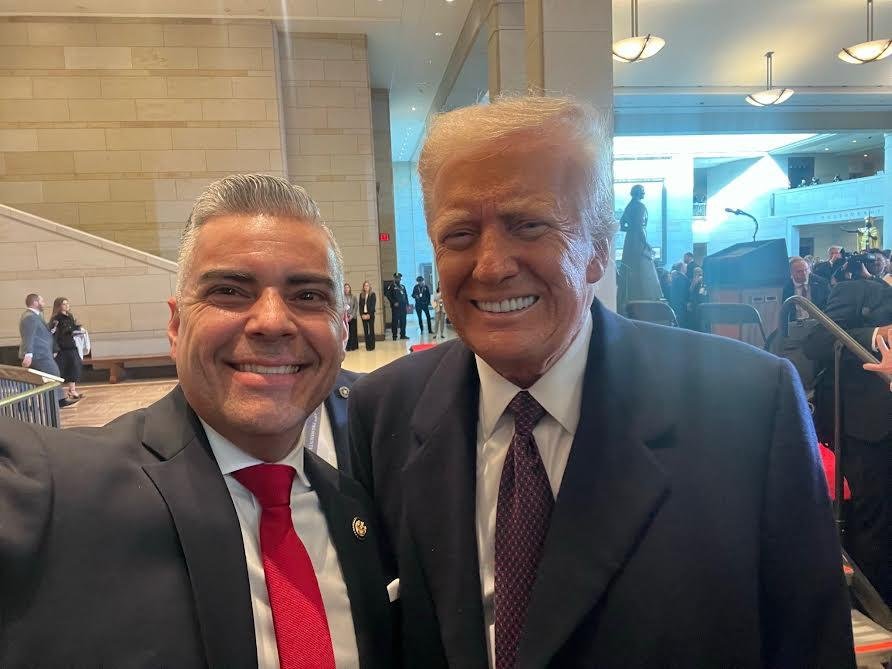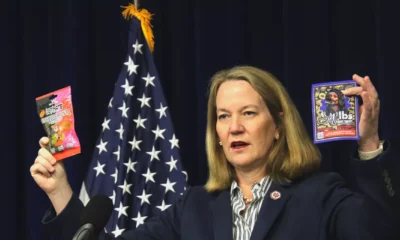border
Ciscomani’s Support for Trump’s Budget Sparks Outrage Among Southern Arizona Democrats

U.S. Representative Juan Ciscomani cast his support for the Republican Party’s budget bill, which narrowly passed the House of Representatives with a 218-214 vote. This legislation is now set to be reviewed by President Donald Trump.
Throughout the bill’s development, Ciscomani expressed concerns regarding cuts to Medicare. Ultimately, he aligned himself with the majority of Republican legislators in endorsing Trump’s legislative initiative, branded as “One Big Beautiful Bill.” This measure proposes significant tax reductions for high earners while slashing funding for various federal programs.
In his second term representing Southern Arizona’s Congressional District 6, Ciscomani acknowledged the bill’s imperfections but praised its provisions for border security and national defense. He argued it would prevent the largest tax increase in history while offering genuine tax relief to working families. The legislation expands the child tax credit and eliminates taxes on tips and overtime, while also providing families with more options for saving for college and healthcare.
However, a Congressional Budget Office analysis indicated that the bill would cut Medicaid and the Children’s Health Insurance Program by over a trillion dollars, leaving an additional 11.8 million Americans uninsured. The financial implications extend further, as the legislation reduces the SNAP food assistance program by hundreds of billions and phases out renewable energy tax credits, despite increasing military and border security funding.
Estimates suggest that the budget package would initiate $4.5 trillion in tax cuts over the next decade. Despite this, the CBO predicts the legislation will add $3.3 trillion to the national deficit within ten years. Republican lawmakers assert that economic growth resulting from these measures will eventually offset the shortfall.
Democratic Senator Mark Kelly of Arizona criticized this perspective as “voodoo economics,” arguing it would lead to substantial debt primarily benefiting the wealthiest Americans. He highlighted disparities in the tax cuts, with the richest receiving exorbitant benefits compared to median-income families.
Opposition to the budget bill was unanimous among House Democrats, joined by two Republicans—Reps. Thomas Massie of Kentucky and Brian Fitzpatrick of Pennsylvania.
The Arizona Hospital and Healthcare Association anticipates that the budget will cost hospitals approximately $6 billion over the next seven years. CEO Ann-Marie Alameddin criticized the bill for imposing new burdens on Arizona, jeopardizing a healthcare system that has broad support among voters and lawmakers.
In Tucson, El Rio Community Health President Clinton Kuntz expressed disappointment, emphasizing that the cuts would have significant repercussions on healthcare. He warned that reducing funding while pushing millions into uninsured status would affect the entire system.
While Ciscomani acknowledged concerns regarding hospital funding, he emphasized access to a new $50 billion hospital fund aimed at supporting low-income facilities, although it is set to expire after five years.
The bill seeks to retract tax subsidies for renewable energy programs implemented under the Biden administration, a move Ciscomani had initially opposed. Yet, he later urged Republican senators to preserve these credits to ensure ongoing energy investments and protect constituents from rising costs.
The Republican decision to cut renewable energy incentives has drawn sharp criticism. Lori Lodes, Executive Director of Climate Power, condemned the move as a detriment to both energy affordability and job sustainability in clean energy sectors, calling it a setback for future investments.
As Ciscomani prepares for potential challenges in the upcoming 2026 midterms, Democratic contender JoAnna Mendoza criticized him for prioritizing the wealthy over working families, arguing his vote could lead to devastating consequences for healthcare and food assistance in their district.
Immigration attorney Mo Goldman, another contender in the Democratic primary, characterized the bill as “grotesque,” predicting significant harm to critical services and an increase in national debt. This sentiment echoed the concerns voiced by Democratic National Committee Chair Ken Martin, who condemned the legislation as harmful to essential services for many Americans.
In defense of Ciscomani, National Republican Congressional Committee spokesperson Ben Petersen claimed he is meeting his commitments by advocating for fiscal responsibility and prioritizing Arizona families.


















